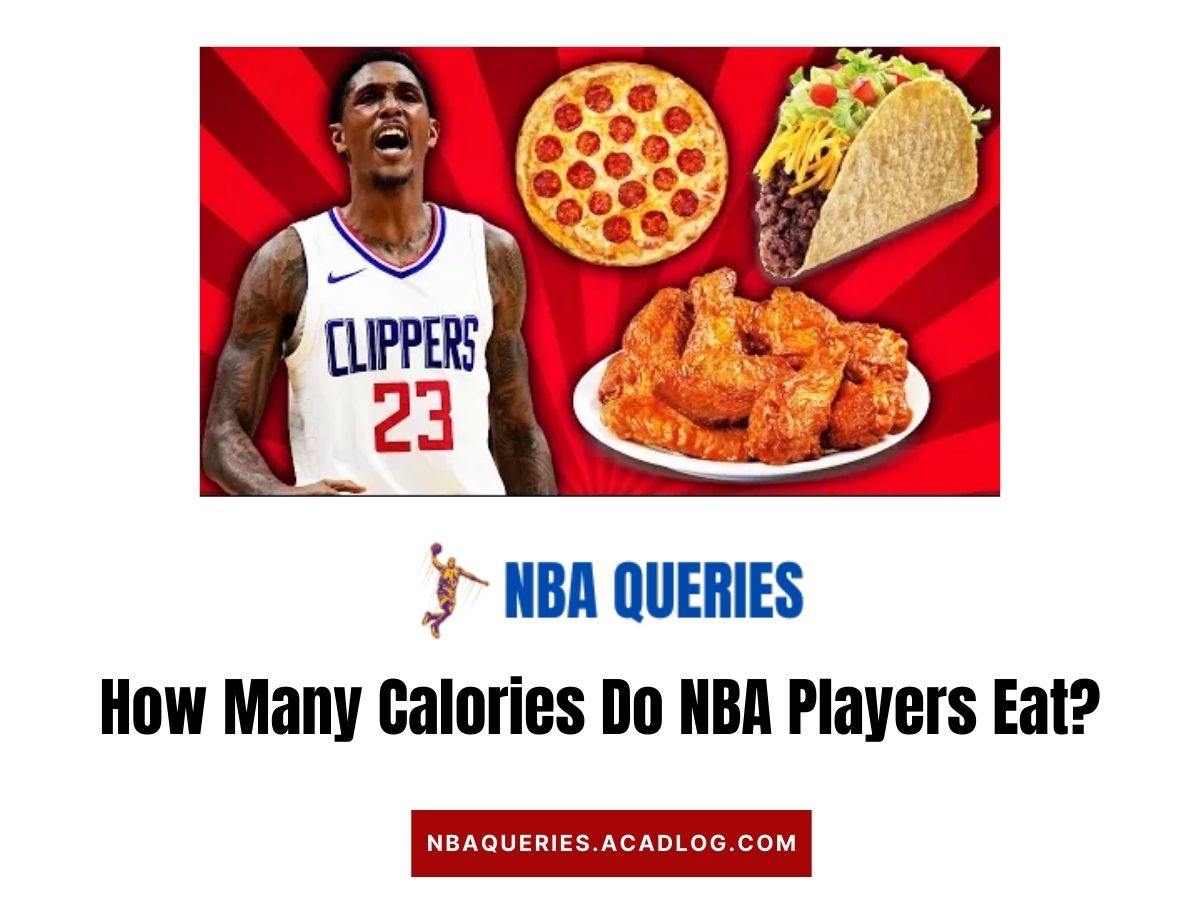Professional basketball players, especially those in the NBA, are elite athletes who push their bodies to the limits during intense games and rigorous training sessions. To maintain peak performance, they pay meticulous attention to their nutrition. In this article, we’ll explore what NBA players eat, how many calories they consume, and the macronutrients that fuel their performances.
1. The Importance of Nutrition for NBA Players
NBA players recognize that their on-court performance is directly linked to their dietary choices. Whether it’s LeBron James, Stephen Curry, or Kevin Durant, these athletes understand that optimal nutrition is a game-changer. Let’s break down the key aspects of their diets:
a. Carbohydrates: The Energy Source
Carbohydrates are the primary energy source for NBA players. They provide the fuel needed for explosive movements, quick sprints, and sustained endurance. Nutritionists recommend that approximately 55% of an NBA player’s calorie intake should come from complex carbohydrates. Here’s why:
- Complex Carbs: Whole grains, fruits, and vegetables offer steady energy release without causing rapid blood sugar spikes. A pre-game meal like a peanut butter and jelly sandwich on whole grain bread exemplifies this balance—complex carbs combined with a touch of sweetness.
- Carb Loading: NBA players strategically use carb loading to enhance endurance. In the days leading up to a game, they increase their carbohydrate intake to replenish muscle glycogen stores. This technique helps delay fatigue during extended matches, especially those lasting over 90 minutes.
b. Protein: Building and Repairing Muscles
Protein is essential for muscle repair and growth. NBA players focus on lean protein sources to meet their high-calorie demands:
- Lean Meats: Grilled chicken, fish, and lean cuts of beef provide quality protein. These foods aid in muscle recovery after intense workouts and games.
- Plant-Based Options: Beans, lentils, and nuts offer plant-based protein alternatives. Many players, like Javale McGee and Chris Paul, follow vegan diets, emphasizing plant proteins.
- Seafood: Salmon, in particular, is a top choice due to its nutrient density and omega-3 fatty acids. These fats support overall health and reduce inflammation.
- Protein Shakes: Convenient and efficient, protein shakes help players rebuild muscle tissue after high-intensity performances.
c. Healthy Fats: Sustaining Energy Levels
While fats have been vilified in the past, they play a crucial role in NBA players’ diets:
- Healthy Fats: Nuts, avocados, and olive oil provide essential fatty acids. These fats sustain energy levels, support brain function, and contribute to overall health.
- Caloric Needs: NBA players often need 4,000 to 5,000 calories per day during the season. LeBron James, for instance, reportedly consumes up to 5,000 calories daily. Their energy expenditure is significantly higher than the average person’s.
2. Tailoring Meals for Peak Performance
NBA stars like Steph Curry and LeBron James meticulously plan their meals:
- Pre-Game Nutrition: Their pre-game meals strike a balance between proteins, complex carbs, and healthy fats. These meals optimize energy levels without causing digestive discomfort during play.
- Post-Game Recovery: After intense games, players focus on replenishing glycogen stores and repairing muscle tissue. Protein shakes and nutrient-dense meals play a crucial role.
4. Hydration: The Unsung Hero
While we often focus on solid foods, hydration is equally vital. NBA players sweat profusely during games, losing essential electrolytes. Here’s how they stay hydrated:
- Water: Plain old water is their best friend. Players carry water bottles everywhere—on the court, during practice, and even during timeouts. Proper hydration enhances cognitive function, prevents cramps, and aids recovery.
- Electrolyte Drinks: To replenish lost sodium, potassium, and magnesium, players turn to sports drinks. These beverages help maintain fluid balance and prevent dehydration.
5. Timing Matters: Pre-Game and Post-Game Meals
a. Pre-Game Nutrition Strategies
- Timing: NBA players eat their pre-game meals about 3 to 4 hours before tip-off. This allows for proper digestion and absorption.
- Balanced Plate: Their plates resemble a nutritional rainbow:
- Proteins: Grilled chicken, turkey, or fish provide amino acids for muscle repair.
- Carbohydrates: Whole grains, sweet potatoes, and quinoa offer sustained energy.
- Veggies: Broccoli, spinach, and bell peppers supply vitamins and minerals.
- Fats: Avocado or a drizzle of olive oil adds healthy fats.
- Avoid Heavy Meals: NBA players steer clear of heavy, greasy foods that can cause discomfort during play. Imagine LeBron James trying to dunk after a plate of deep-fried chicken wings—it’s not ideal!
b. Post-Game Recovery Rituals
- The 30-Minute Window: After a game, players aim to consume a recovery meal within 30 minutes. During this window, their muscles are most receptive to nutrients.
- Protein Shake: A protein shake with whey or plant-based protein helps kickstart muscle repair. Add a banana for extra carbs.
- Carb-Protein Combo: A balanced meal of chicken breast (protein) and brown rice (carbs) refuels glycogen stores and repairs muscle fibers.
6. Case Studies: What the Stars Eat
a. LeBron James
- Caloric Intake: LeBron reportedly consumes around 5,000 calories daily.
- Breakfast: Egg whites, oatmeal, and fruit.
- Lunch: Grilled chicken salad with quinoa.
- Snacks: Almonds, Greek yogurt, and protein bars.
- Dinner: Salmon, steamed veggies, and sweet potatoes.
b. Stephen Curry
- Lean and Green: Curry focuses on lean proteins (chicken, fish) and greens (kale, spinach).
- Pre-Game Ritual: A peanut butter and honey sandwich on whole grain bread.
c. Kevin Durant
- High-Quality Proteins: Durant opts for lean meats and protein shakes.
- Post-Game: Grilled salmon with asparagus and quinoa.
7. The Final Buzzer
NBA players don’t just play—they strategize, fuel, and recover. Their diets are as meticulously planned as their game-winning shots. So, next time you watch a thrilling NBA match, appreciate the science behind those crossovers and alley-oops—the science of nutrition.

